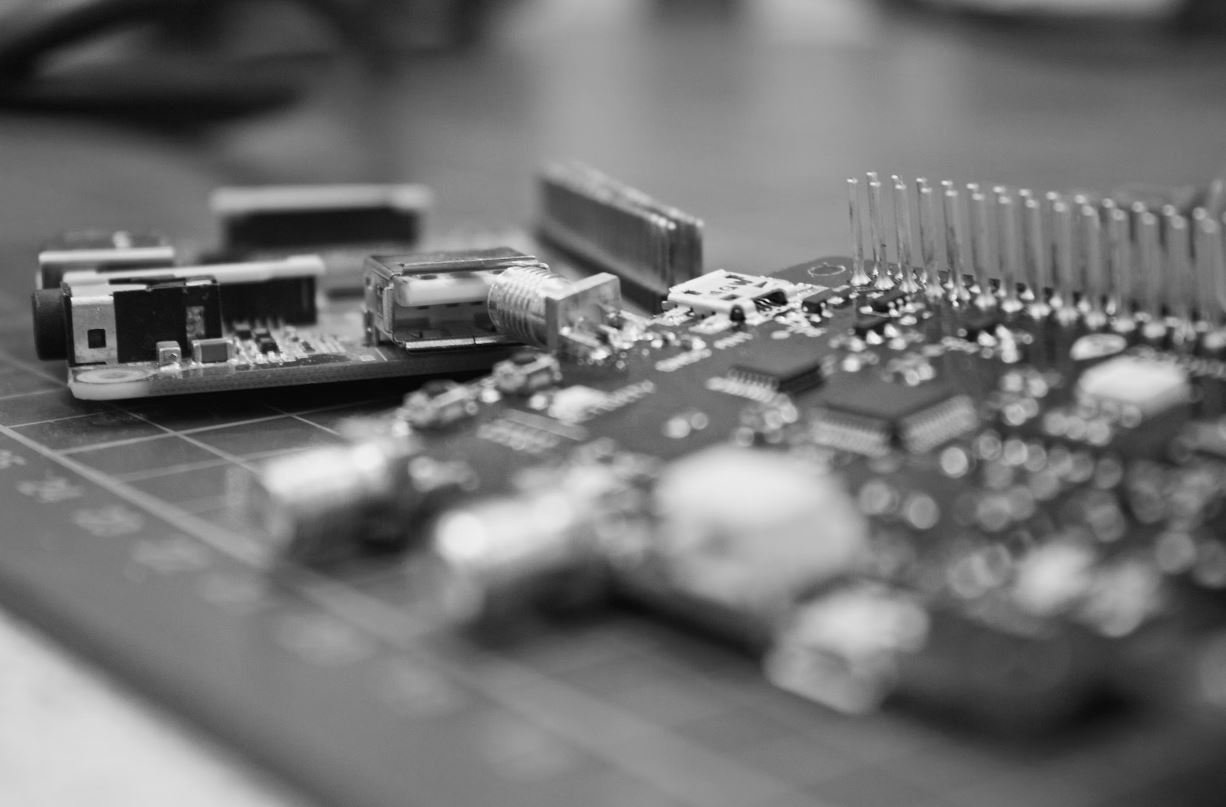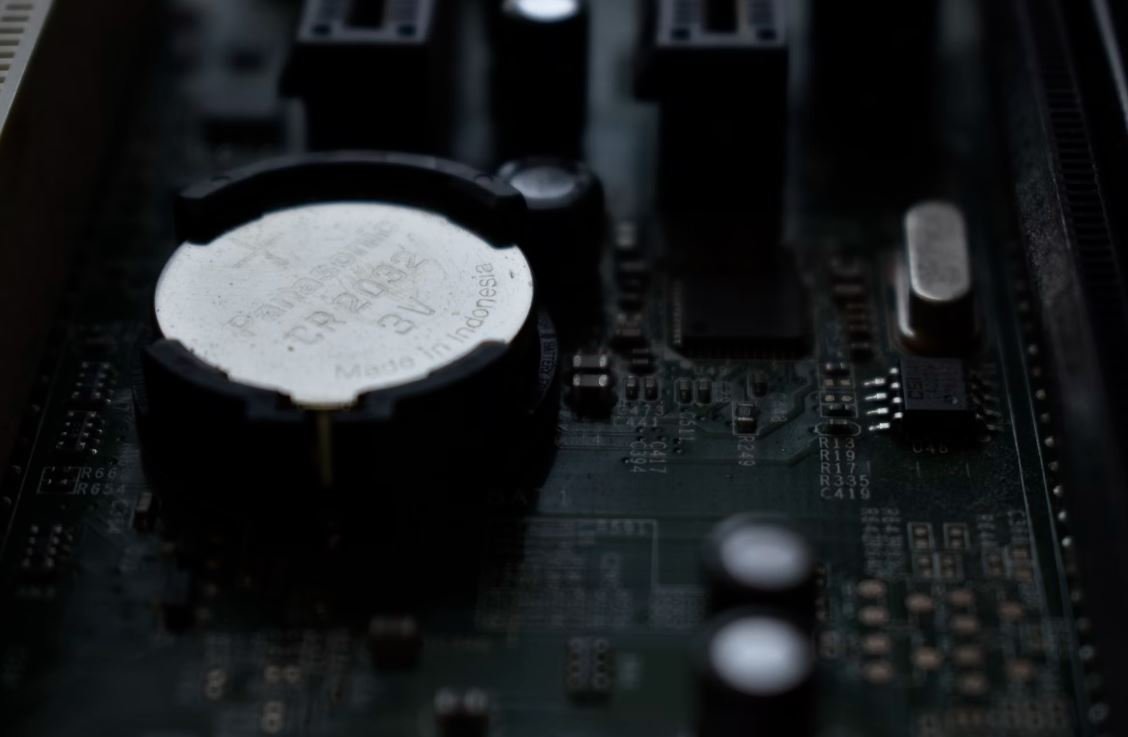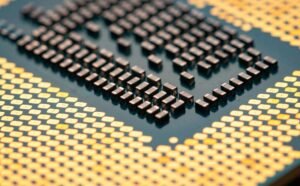AI Applications in Healthcare PPT
Artificial intelligence (AI) is revolutionizing the healthcare industry by transforming various processes and improving patient outcomes. In this article, we will explore the applications of AI in healthcare, highlighting its key benefits and discussing some real-world examples.
Key Takeaways:
- AI is being successfully used in healthcare to enhance diagnostics, treatment development, and patient care.
- By leveraging AI, healthcare providers can improve accuracy, efficiency, and personalized care.
- Real-world examples of AI applications in healthcare include medical image analysis, virtual nursing assistants, and drug discovery.
AI for Medical Image Analysis
Medical image analysis is an area where AI has had a profound impact. With the ability to analyze vast amounts of medical images, AI algorithms can quickly and accurately identify abnormalities, supporting doctors in making more informed diagnoses. *AI-powered image analysis has shown impressive results, achieving similar or even better accuracy than human experts in some cases.*
For instance, AI algorithms can detect early signs of diseases like cancer on X-rays, MRIs, and mammograms. This not only improves early detection rates but also helps in deciding appropriate treatment strategies. Medical image analysis through AI has the potential to save lives and reduce healthcare costs by catching diseases at their earliest stages.
Virtual Nursing Assistants
Virtual nursing assistants powered by AI technology have the ability to monitor patient vital signs, answer basic healthcare questions, remind patients to take their medications, and even provide emotional support. *These virtual assistants can augment the work of nurses, extending care and improving patient experience.* Nurses can focus on critical tasks while virtual assistants handle routine interactions, leading to greater efficiency in healthcare workflows.
Moreover, virtual nursing assistants enable continuous remote monitoring of patients, allowing doctors to intervene early and prevent potential complications. These AI-powered assistants can make healthcare accessible and affordable for people in remote locations or with limited access to medical facilities.
Drug Discovery
AI is revolutionizing the field of drug discovery by accelerating the process of developing new medicines. With the ability to analyze large volumes of genetic and molecular data, AI algorithms can identify potential drug targets and predict their efficacy and side effects. This enables researchers to focus their efforts on the most promising candidates, saving time and resources. *AI has the potential to significantly reduce the time it takes to bring new drugs to market, benefiting patients worldwide.*
Additionally, AI algorithms can analyze electronic medical records and scientific literature to uncover hidden patterns and support evidence-based medicine. This knowledge integration can help doctors make better-informed treatment decisions, resulting in improved patient outcomes.
Table 1: AI Applications in Healthcare
| Application | Description |
|---|---|
| Medical Image Analysis | AI algorithms analyze medical images to aid in diagnosis and treatment planning. |
| Virtual Nursing Assistants | AI-powered virtual assistants provide support, patient monitoring, and healthcare reminders. |
| Drug Discovery | AI accelerates the discovery and development of new drugs. |
The Future of AI in Healthcare
The potential of AI in healthcare is immense, and its applications continue to evolve. As technology advances, AI has the capability to assist in robotic surgeries, predict disease outbreaks, develop personalized treatment plans based on patient-specific data, and more.
The integration of AI into healthcare systems requires careful consideration of ethical and privacy concerns, as well as close collaboration between healthcare professionals, technologists, and regulatory bodies. By harnessing the power of AI and combining it with human expertise, we can unlock new possibilities and transform healthcare in unimaginable ways.
Table 2: Benefits of AI in Healthcare
| Benefit | Description |
|---|---|
| Improved Accuracy | AI algorithms can provide more accurate diagnoses and treatment plans. |
| Enhanced Efficiency | AI streamlines healthcare workflows and reduces administrative burden. |
| Personalized Care | AI enables tailored treatments based on individual patient data. |
Real-world Examples
- In 2018, Google’s AI system demonstrated the ability to detect lung cancer with a 94.4% accuracy rate, outperforming experienced radiologists.
This breakthrough has the potential to revolutionize early lung cancer detection and improve patient outcomes. - The online symptom checker Babylon Health uses AI algorithms to provide preliminary diagnoses and treatment options, offering accessible healthcare advice to millions of people.
This technology empowers individuals to make informed decisions about their health and seek appropriate medical care.
Table 3: AI-driven Innovations in Healthcare
| Innovation | Description |
|---|---|
| AI-powered Chatbots | Chatbots assist patients in triaging their symptoms and provide initial medical advice. |
| Virtual Reality Therapy | AI-driven virtual reality experiences aid in pain management and mental health therapies. |
| Predictive Analytics | AI analyzes patient data to predict disease progression and potential complications. |
The possibilities of AI in healthcare are vast, and the benefits it brings are undeniable. As technology continues to advance, we can expect groundbreaking applications that will reshape the healthcare landscape for the better.

Common Misconceptions
Misconception 1: AI can replace healthcare professionals completely
Misconception 1: AI can replace healthcare professionals completely
One common misconception about AI applications in healthcare is that they can completely replace healthcare professionals. While AI technology can assist in various tasks and enhance efficiency, it cannot completely replace the knowledge, experience, and human interactions that healthcare professionals provide.
- AI technology can enhance diagnostic accuracy and speed.
- Healthcare professionals are essential for interpreting and explaining complex medical information to patients.
- The human touch and empathy in patient care cannot be replicated by AI.
Misconception 2: AI in healthcare is only useful for diagnosing diseases
Another common misconception is that AI in healthcare is limited to diagnosing diseases. While AI can indeed aid in accurate diagnosis, its applications in healthcare go beyond that. AI can assist in various aspects of healthcare, such as drug discovery, personalized treatment plans, remote patient monitoring, and administrative tasks.
- AI can analyze vast amounts of medical data to identify patterns and potential new treatments.
- AI can help personalize treatment plans based on genetic information and patient records.
- AI can automate administrative tasks, reducing paperwork and improving efficiency.
Misconception 3: AI poses a threat to patient privacy
Many people mistakenly believe that AI in healthcare poses a threat to patient privacy. While there are valid concerns about data security and privacy, responsible implementation of AI technology in healthcare ensures that patient data remains confidential and protected.
- Strict data protection regulations are in place to safeguard patient information.
- Healthcare organizations must implement robust security measures to prevent unauthorized access to patient data.
- Audit trails and access controls can be implemented to monitor and track data usage.
Misconception 4: AI is too expensive for small healthcare providers
Some people mistakenly believe that AI applications in healthcare are only affordable for large healthcare providers and institutions. While implementing AI technology may have upfront costs, its long-term benefits can make it cost-effective even for small healthcare providers.
- AI can help streamline processes, reducing operational costs in the long run.
- Cloud-based AI solutions eliminate the need for expensive hardware infrastructure.
- Collaborative partnerships and shared resources can make AI more accessible for smaller healthcare providers.
Misconception 5: AI in healthcare is only useful in developed countries
It is a misconception that AI applications in healthcare are only useful in developed countries. While the availability of advanced infrastructure and resources may vary across countries, AI technology can be adapted and utilized in various healthcare settings worldwide, including in developing regions.
- AI can aid in resource allocation and optimize healthcare delivery in limited-resource settings.
- Mobile-based AI applications can bridge the healthcare gap in remote areas.
- Collaborative efforts and knowledge-sharing can help adapt AI to the specific needs of different regions.

AI in Healthcare: Advancements and Applications
Rapid advancements in artificial intelligence (AI) have revolutionized various industries, and one area that has seen significant developments is healthcare. AI applications in healthcare have the potential to enhance patient care, improve diagnoses, and optimize treatment plans. The following tables showcase some intriguing applications of AI in the healthcare industry.
Reducing Medical Errors
Medical errors can lead to adverse patient outcomes and increased healthcare costs. Leveraging AI technology, healthcare providers can minimize these errors and improve overall patient safety. The table below highlights some key statistics related to medical errors and AI’s impact on reducing them.
| Medical Error Statistics | AI Impact |
|————————-|———–|
| Approximately 250,000 deaths per year in the US are due to medical errors | AI-driven diagnostic systems can reduce diagnostic errors by up to 85% |
| Medication errors account for 7,000 deaths annually in the US | AI-powered medication management systems can reduce medication errors by up to 50% |
| Surgical errors affect 4,000 patients each year | AI-aided surgical robots can improve precision and reduce surgical errors by up to 75% |
Enhancing Disease Detection
Early and accurate disease detection significantly improves patient outcomes and treatment effectiveness. AI technologies can be utilized to detect diseases more efficiently and with greater accuracy, leading to improved prognosis. The table below presents some intriguing data about AI’s contribution to disease detection.
| Disease Detection Statistics | AI Contribution |
|—————————–|—————–|
| Breast cancer misdiagnosis rates range from 15-40% | AI-powered algorithms can enhance breast cancer detection accuracy to over 90% |
| Lung cancer has a 5-year survival rate of 18% | AI-based systems can identify early-stage lung cancer with up to 97% accuracy, enhancing survival rates |
| AI algorithms can analyze retinal images for diabetic retinopathy with 95% accuracy | Early detection enables timely intervention and prevents vision loss |
Personalized Treatment Plans
In healthcare, personalized treatment plans tailored to individual patients can lead to improved outcomes and patient satisfaction. Through AI-driven algorithms, healthcare providers can develop highly customized treatment plans based on patient-specific data and medical knowledge. The table below demonstrates the positive impact of personalized treatment plans.
| Personalized Treatment Benefits | Data-Driven AI |
|——————————–|—————|
| 50% reduction in hospital readmission rates for heart failure patients with personalized treatment | AI algorithms can analyze patient data to develop customized treatment plans |
| Patient satisfaction rates increase by 30% with personalized care plans | AI-enabled systems utilize real-time patient feedback to optimize treatment plans |
| Alzheimer’s patients on personalized treatment see improved cognitive function and slower disease progression | AI algorithms can identify personalized interventions based on patient-specific data |
Improving Remote Patient Monitoring
Remote patient monitoring allows healthcare providers to monitor patients’ health conditions without physical presence, improving access to care, and reducing hospital visits. AI technologies play a crucial role in enhancing remote patient monitoring, as illustrated in the following table.
| Remote Patient Monitoring Benefits | AI Integration |
|———————————–|—————-|
| 25% reduction in hospital readmission rates for heart failure patients with remote monitoring systems | AI algorithms analyze patient data remotely and detect early signs of deterioration |
| Reduction of emergency room visits by 40% with remote monitoring for chronic conditions | AI-powered systems can track vital signs and alert healthcare providers of any abnormalities |
| Improved overall outcomes and quality of care for patients with chronic diseases through continuous remote monitoring | AI algorithms can provide insights into disease progression and enable timely interventions |
Revolutionizing Radiology
AI has made significant strides in the field of radiology, improving diagnostic accuracy, reducing waiting times, and enhancing workflow efficiency. The table below showcases some notable advancements in radiology made possible by AI applications.
| Advancements in Radiology | AI Integration |
|————————–|—————-|
| AI algorithms can detect lung nodules with 97% accuracy, compared to 65% for radiologists | AI-powered tools aid radiologists in identifying potential abnormalities |
| Reduced interpretation time for MRI scans by up to 90% with AI-assisted image analysis | AI algorithms automatically analyze and highlight areas of interest |
| AI systems can identify diabetic retinopathy from retinal images with 90% accuracy | Early detection enables timely intervention and reduces the risk of vision loss |
Streamlining Healthcare Administrative Tasks
AI technologies can automate and streamline various administrative tasks in healthcare, improving operational efficiency, reducing costs, and freeing up healthcare professionals’ time. The table below presents some key examples of administrative tasks that can be enhanced through AI integration.
| Administrative Tasks | AI Automation |
|———————|—————|
| AI chatbots can provide instant responses and assistance to patient inquiries, reducing administrative workload | Chatbots can handle triage, appointment scheduling, and FAQs |
| Automatic medical coding with AI algorithms reduces coding errors and improves billing efficiency | AI systems analyze medical documentation to generate accurate billing codes |
| AI-powered tools streamline insurance claims processing, reducing the need for manual intervention | Claims can be automatically validated, ensuring faster reimbursement |
Augmenting Drug Development
The process of drug development is complex and time-consuming, involving extensive research and clinical trials. AI technologies can augment and accelerate various stages of drug development, leading to novel treatments and faster time-to-market. The table below highlights the impact of AI in drug development.
| Drug Development Advancements | AI Integration |
|—————————–|—————-|
| AI algorithms can analyze vast amounts of genomic data to identify potential drug targets | Faster identification of targets accelerates the drug discovery process |
| AI-enabled systems predict drug efficacy and toxicity, reducing the failure rate in clinical trials | Predictive models aid in selecting the most promising drug candidates |
| AI-assisted discovery of drug combinations improves treatment effectiveness and reduces resistance development | Combinations identified through AI approaches show enhanced therapeutic outcomes |
Enhancing Mental Health Care
Mental health is a critical aspect of healthcare, and AI technologies can assist in improving mental health treatment and support. From predictive models to AI chatbots, the table below presents some intriguing applications of AI in mental health care.
| AI Applications in Mental Health | Benefits |
|——————————–|———-|
| AI chatbots provide 24/7 mental health support, reducing wait times and offering immediate assistance | Chatbots offer personalized interventions and coping strategies |
| Early detection of suicidal behavior through AI analysis of social media posts | Immediate intervention measures can be implemented to support individuals in crisis |
| AI systems can predict treatment response for mental health conditions, improving medication selection | Personalized treatment plans based on AI predictions optimize therapeutic outcomes |
Artificial Intelligence and Telemedicine
Telemedicine has gained immense popularity, especially in remote areas, allowing patients to receive medical consultations and services remotely. AI technologies complement telemedicine, facilitating accurate diagnoses, and optimizing patient experiences. The table below showcases the impact of AI in telemedicine.
| AI Impact on Telemedicine | Benefits |
|————————–|———-|
| AI-powered diagnostic systems can analyze medical images remotely, improving accuracy and reducing specialist referrals | Timely and accurate diagnosis without the need for physical presence |
| AI chatbots gather patient information and symptoms before teleconsultations, ensuring efficient use of healthcare providers’ time | Streamlined and focused consultations |
| Real-time translation and interpretation services powered by AI eliminate language barriers in telemedicine | Overcoming communication challenges and expanding access to care |
Conclusion
The integration of AI in healthcare holds immense promise for transforming patient care, enabling early disease detection, enhancing treatment outcomes, and streamlining healthcare operations. By leveraging AI technologies, medical professionals can significantly improve diagnostic accuracy, reduce medical errors, and offer personalized treatment plans. Furthermore, AI applications have the potential to increase access to healthcare services, particularly in remote areas. With ongoing advancements, AI in healthcare continues to shape the future of medicine, focusing on improving patient outcomes and overall healthcare quality.
AI Applications in Healthcare – Frequently Asked Questions
1. What are the potential applications of AI in healthcare?
AI can be applied in healthcare to improve diagnosis, personalize treatment plans, predict patient outcomes, automate administrative tasks, enhance drug discovery, and assist in surgical procedures.
2. How does AI improve diagnosis in healthcare?
AI algorithms can analyze medical imaging scans, patient data, and genetic information to identify patterns and anomalies that may be missed by human doctors, leading to more accurate and timely diagnosis.
3. How can AI personalize treatment plans?
By analyzing large amounts of patient data and considering individual characteristics such as genetics, lifestyle, and medical history, AI can suggest personalized treatment plans that are tailored to the patient’s unique needs.
4. What role does AI play in predicting patient outcomes?
Using machine learning algorithms, AI can analyze patient data and identify patterns that may predict the likelihood of certain outcomes, such as disease progression, treatment response, and patient prognosis.
5. How does AI automate administrative tasks in healthcare?
AI-powered systems can automate tasks such as appointment scheduling, medical transcription, billing, and claim processing, reducing administrative burden and freeing up healthcare professionals’ time.
6. In what ways can AI enhance drug discovery?
AI algorithms can analyze vast amounts of genomic and molecular data to identify potential drug targets, predict drug efficacy, and accelerate the discovery and development of new medications.
7. How does AI assist in surgical procedures?
Robotic systems powered by AI can assist surgeons during procedures by providing real-time insights, precise guidance, and in some cases, even performing certain steps of the surgery autonomously, improving surgical precision and patient outcomes.
8. What are the challenges and limitations of AI in healthcare?
Some challenges include data privacy and security concerns, lack of interpretability of AI algorithms, integration with existing healthcare systems, and regulatory hurdles. AI also cannot replace human expertise and may have biases if trained on biased datasets.
9. How can AI improve patient care and outcomes?
AI can improve patient care by providing more accurate diagnosis, personalized treatment plans, and predictive insights. It can also enhance healthcare workflows, reduce medical errors, and enable cost-effective healthcare delivery.
10. How can healthcare professionals leverage AI effectively?
Healthcare professionals can leverage AI effectively by staying updated with advancements in AI technology, collaborating with data scientists and AI experts, ensuring ethical and responsible use of AI, and continuously evaluating AI systems’ performance and effectiveness.





